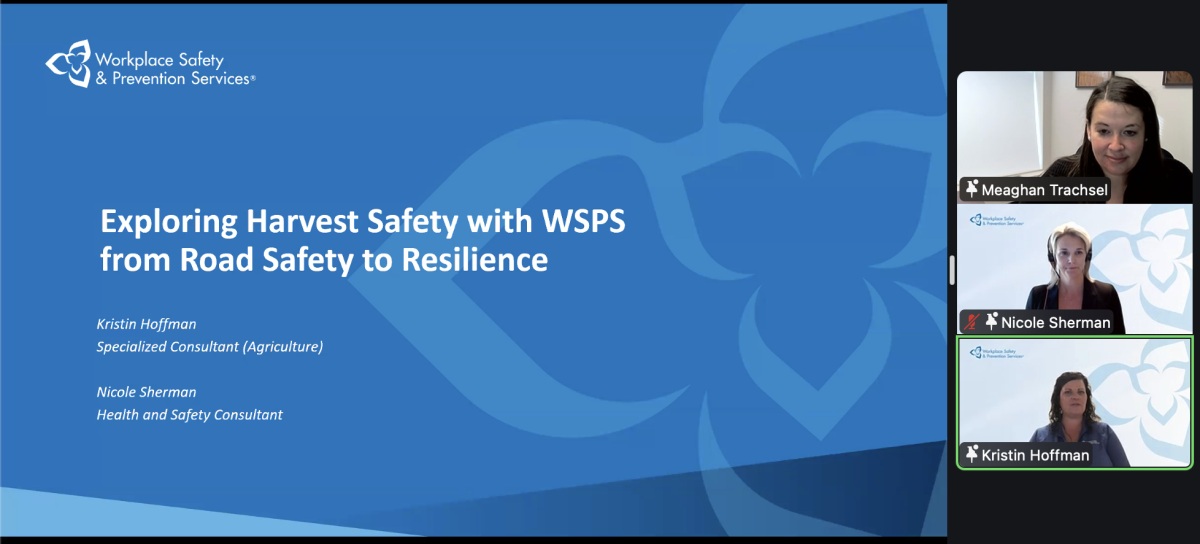The agricultural index in Scotiabank’s Commodity Price Index jumped 6.7 per cent month-over-month during September, helping pull the commodity index out of a three-month decline.
Patricia Mohr, the company’s vice-president of economics and commodity market specialist, wrote in a research report Wednesday that agriculture and energy helped the overall index — which gauges commodities’ performance as an asset class, on behalf of investors — rise 0.3 per cent month over month, although overall commodity prices remain 8.5 per cent above last year’s.
The agricultural index rose in September to a level 38.4 per cent above the year-earlier period, she wrote. “After lagging other commodity sectors, grain and oilseed prices have recently outperformed, offsetting mixed trends in livestock prices.”
Read Also

Exploring Harvest Safety
Kristin Hoffman of WSPS explains measures for increased farm safety around harvest season
Specifically, she said, wheat, barley and canola prices have risen 59, 64 and 49 per cent year-over-year respectively (in Canadian dollar terms) through September and Canadian crop receipts in the first half of the year were up 26 per cent from the year-earlier period.
Mohr cited a rise in the Canadian Wheat Board’s asking export price for No. 1 CWRS 13.5 in early October to $401 per tonne, just short of the 25-year record of $416 in May 1996.
Drought in Australia and the projected lowest ending stocks for wheat since 1975-76 pumped up U.S. wheat prices, she noted, adding that U.S. what stocks at the end of 2007-08 are expected to dip to their lowest levels since 1948-49.
“However, increasing buyer resistance has moderated prices in the last several weeks,” she noted in the report.
While canola prices are lucrative, crush margins have also been “very attractive,” Mohr wrote, as vegetable oil prices have advanced more than seed prices.
The report also cited plans to expand the Prairie canola crush by double digits in the next 24 months, including the doubling of capacity at Cargill’s Clavet, Sask., facility just southeast of Saskatoon, and construction of two separate major crush plants at Yorkton, Sask., for JRI and Louis Dreyfus Canada respectively.
Strong rallies in Edmonton light crude oil and propane prices offset slipping natural gas export prices, allowing the oil and gas index to inch ahead in September, Mohr wrote. Gains in agriculture and energy, however, were offset by declines in the metal and mineral and forest products indices.
Base metals were mixed and spot uranium prices fell, offset by strong precious-metal and potash prices, the report noted. Lower prices for building materials and newsprint offset a US$20 increase in northern bleached softwood kraft (NBSK) pulp.














